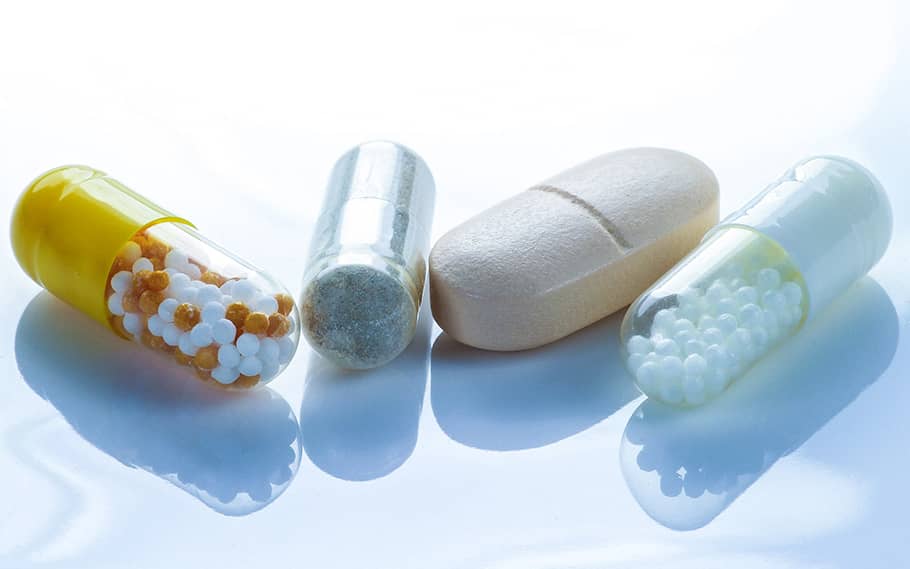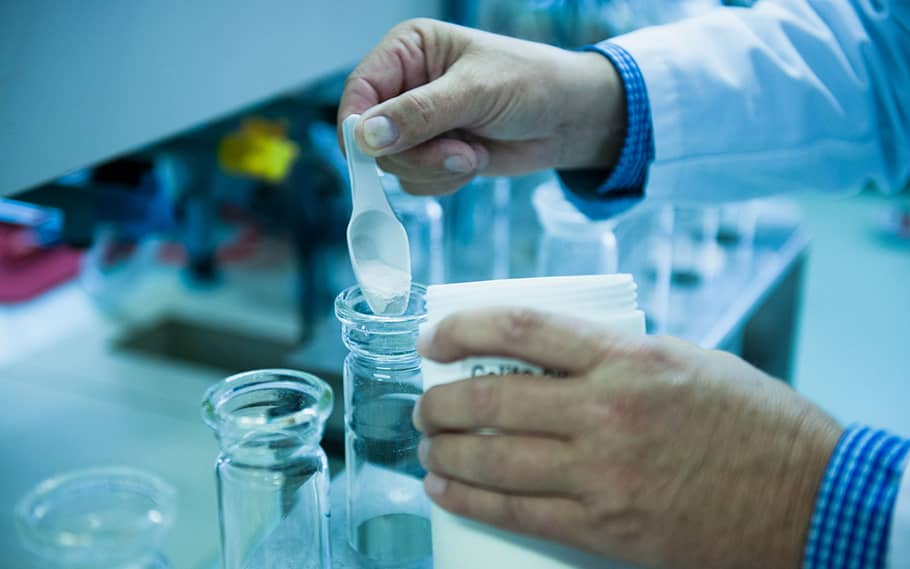Legal requirements
According to the Swiss Food Law, dietary supplements are judged to be Special Foodstuffs which contribute to the achievement of particular nutritional physiological effects (Article 2 Section 1, 22 of the Ordinance of the Swiss Federal Department of Home Affairs over Special Foodstuffs). Dietary supplements that fulfil the special and general requirements embedded in this Ordinance are marketable without need for approval. In contrast to the EU, Switzerland has a positive list of permitted health claims. New types of dietary supplements or dietary supplements with new health claims do however require approval.
It is frequently difficult to differentiate between dietary supplements and medicines. This is performed by looking at the intended purpose: firstly via the product composition (object purpose), and secondly at its presentation and promotion from the point of view of the manufacturer (subjective purpose). A classification of plant extracts for the differentiation of medicines from foodstuffs arises from the “List for the Categorisation of Plant Substances” (“Liste zur Einstufung pflanzlicher Stoffe”) of the Swiss Federal Office for Public Health (BAG) which was published in collaboration with Swissmedic to ensure health-related harmlessness with corresponding explanations.
In Switzerland the following legal guidelines must be observed for dietary supplements:
- The Swiss Federal Law on Foodstuffs and Consumer Products (LMG) from 9th October 1992 (updated 1st October 2013)
- Ordinance on Foodstuffs and Consumer Products (LGV) from 23rd November 2005 (updated 1st January 2013)
- Ordinance of the Swiss Federal Department of Home Affairs on the Labelling and Advertising of Foodstuffs (LKV) from 23rd November 2005 (updated 1st January 2013)
- Ordinance of the Swiss Federal Department of Home Affairs on Special Foodstuffs from 23rd November 2005 (updated 1st January 2012)
European legislation in relation to dietary supplements:
- Regulation (EC) No. 1924/2006 of the European Parliament and of the Council from the 20th December 2006 on the nutritional and health claims of foodstuffs (Health Claims)
- Regulation (EC) No. 258/97 of the European Parliament and of the Council from 20th January 1997 on novel foods and novel food ingredients (Novel Food Regulation)
In addition, recommended dosages, maximum and minimum values of possible ingredients and regulations for labelling and packaging design must be observed.
Ingredients
Typical ingredients in dietary supplements in Switzerland could be divided into the following substance classes. The use of these substances is dependent on the purpose of the preparation (e.g. for dietary and weight reduction purposes, or in the case of cardiovascular complaints):
- Minerals and vitamins: There are legal maximum and minimum values for these.
- Antioxidants
- Secondary phytochemicals (e.g. anthocyanins, carotenoids, phytosterines, saponins, polyphenols, flavonoids etc.)
- Coenzyme Q10
- Creatine
- L-Carnitine
- Phytoestrogens
UFAG LABORATORIEN can offer an extensive range of analyses on many of these substance classes. In some cases, these are performed in collaboration with specialised partner laboratories. Examples of this are:
- Vitamins
- Minerals
- Anthocyanins:
- a) Total anthocyanins
- b) Qualitative analysis
- c) Quantitative analysis of anthocyanins present
- d) Identification and quantification of all detectable anthocyanins
- Ginsenosides in products with ginseng roots
- Catechins in products with green tea extract, with expulsion of the levels of catechin, epicatechin, epicatechin-3-gallate and epigallocatechin gallate (EGCG)
- Aloin in products with aloe vera: Due to the positive image of aloe vera and its relatively high commodity prices, it is frequently falsified. By analogy with other medicinal plants, a sound quality control is therefore recommended.
- L-carnitine: free and bonded
- Coenzyme Q10 (Ubichinon)
- Carotenoids such as beta-carotene, canthaxanthin, lutein, zeaxanthin or astaxanthin
- Phytoestrogens: Isoflavones as a multi-method with expulsion of daidzin, glycitin, genistin, daidzein, glycitein, genistein, coumestrol and total isoflavones
- Oligomere proanthocyanidins (OPC)
- ORAC test for antioxidants: An ORAC test is used to determine what is known as the antioxidant capacity of a food, such as fruit juice or food supplements for example.
- Polyphenols: photometric determination of total polyphenols using the Folin-Ciocalteu reagent
- Pomegranate components such as punicalagin and ellagic acid

![[Translate to english:] Qualitätskontrollen und Gehaltsbestimmungen in Nahrungsergänzungsmitteln [Translate to english:] Qualitätskontrollen und Gehaltsbestimmungen in Nahrungsergänzungsmitteln](/fileadmin/Content/05_Lebensmittel/Lebensmittel_Nachungsergaenzungsmittel/lebensmittel-nahrungsergaenzungsmittel-header.jpg)


